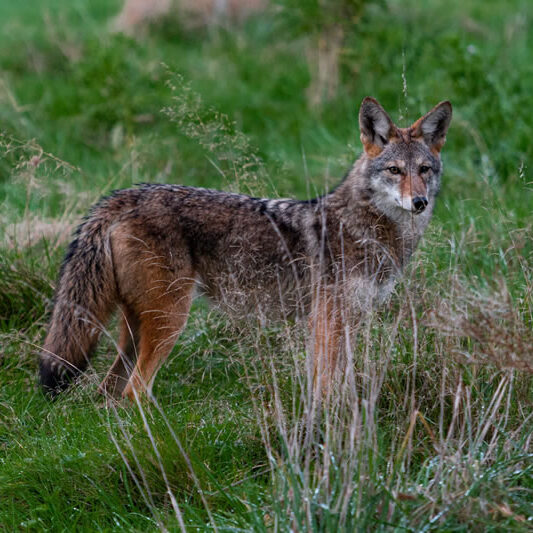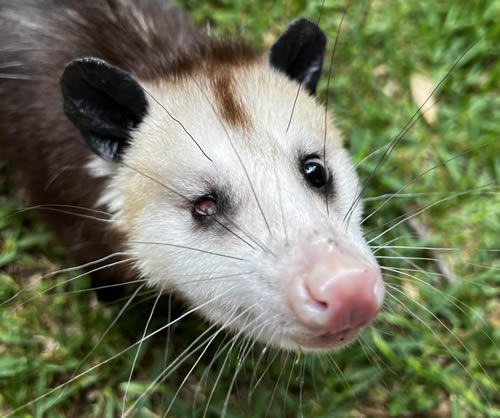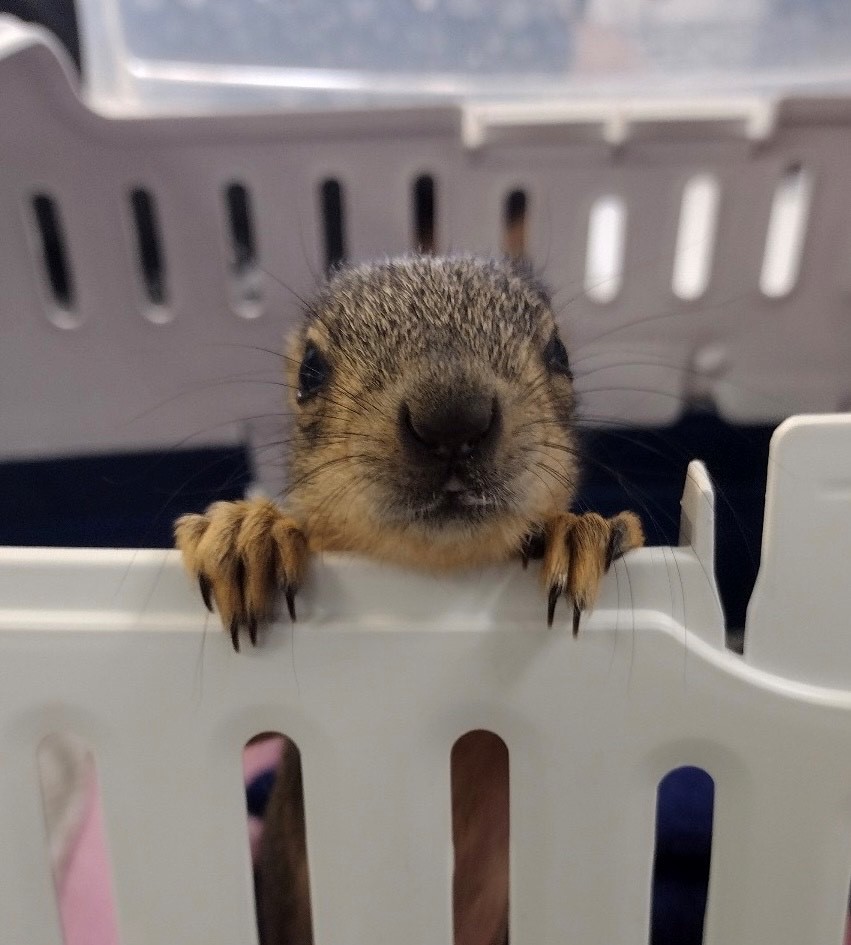RABIES VECTOR SPECIES - POTENTIAL EXPOSURE
Please call 713-767-3300 for Zoonosis Control if there was a potential rabies exposure
WE ARE CURRENTLY NOT ACCEPTING ADMISSIONS FOR THIS SPECIES. PLEASE VISIT ANIMAL HELP NOW TO FIND A WILDLIFE CENTER THAT IS ACCEPTING THEM NEAR YOU.
Have you been seeing coyotes around your NEIGHBORHOOD?
Coyotes are very skittish and rarely a danger to people. If seen, we suggest keeping all pets indoors. It is not uncommon to see coyotes out during the day, this alone is not a reason to believe the coyote is in need of help. To keep coyotes off the property, we suggest chain link fences, or attaching a coyote roller to the top of the fence. These devices are sold at https://coyoteroller.com/ and prevent all wildlife from climbing or perching on fences. Another method to deter friendly coyotes is to make loud noises like yelling or banding pots and pans when the coyotes are spotted nearby. It is important to seem as intimidating as possible because the coyote will read your body language as well to determine if you are a real threat. If loud noises are not effective, spraying the coyotes with water from a hose will encourage them to leave.

Have you found an INJURED or ILL adult coyote?
PLEASE DO NOT TOUCH THE ANIMAL. Adult coyotes are very dangerous and are a rabies vector species. Call your county’s Animal Control agency for help with an injured or ill adult coyote.
Temporary Care Instructions for Coyotes:
- Do not give the animal any food or liquids. Feeding an animal an incorrect diet can result in injury or death. In addition, rescued animals can get wet from liquids and become hypothermic and/or spill food on their fur/feathers, potentially causing damage.
- It is best not to attempt to contain an adult coyote without the proper equipment and training.
- Found pups should also not be contained without the proper training and equipment in case there are adults nearby.
- Leave the animal alone. Human noise, touch, and eye contact are very stressful to wild animals and can result in shock or even death. This is especially important in the case of injured or adult animals.
- Keep children and pets away. BE CAREFUL! An animal that is hurt or frightened may bite.
- Call HHS Wildlife Center at 713-468-8972 as soon as possible!
General Information about Coyotes in the Houston Area
The average size of a litter of coyote pups is 4 to 7. They have strong family bonds, but most "packs" are made up of only one family. Coyotes are opportunistic eaters that typically hunt as a family to pass on safe hunting and foraging locations. They typically eat mice and small birds, but will sometimes catch larger prey if given the opportunity. Safe hunting grounds and routes to travel along are important teachings passed on from parents because the leading cause of death for coyotes is traffic collisions when trying to safely navigate between territories.
Coyote sightings can be common even in a heavily populated area like a big city. Not only do humans take more and more of their natural habitat through subdivisions, roads, etc. away, but the coyotes also get more and more accustomed to humans and learn how to survive in their proximity. We provide lots of food sources for them, like birdfeeders, cat food, trash, etc. Coyotes learn how to take advantage of these situations and adapt to the situations they are put in. However, coyotes are wild animals that have a natural fear of humans and they try to avoid us by all means. Because of this, they should not be viewed as a safety threat to humans, only to pets. For information about deterring coyotes from your backyard, check out our Deterring Wildlife page under Coexisting with Wildlife.


